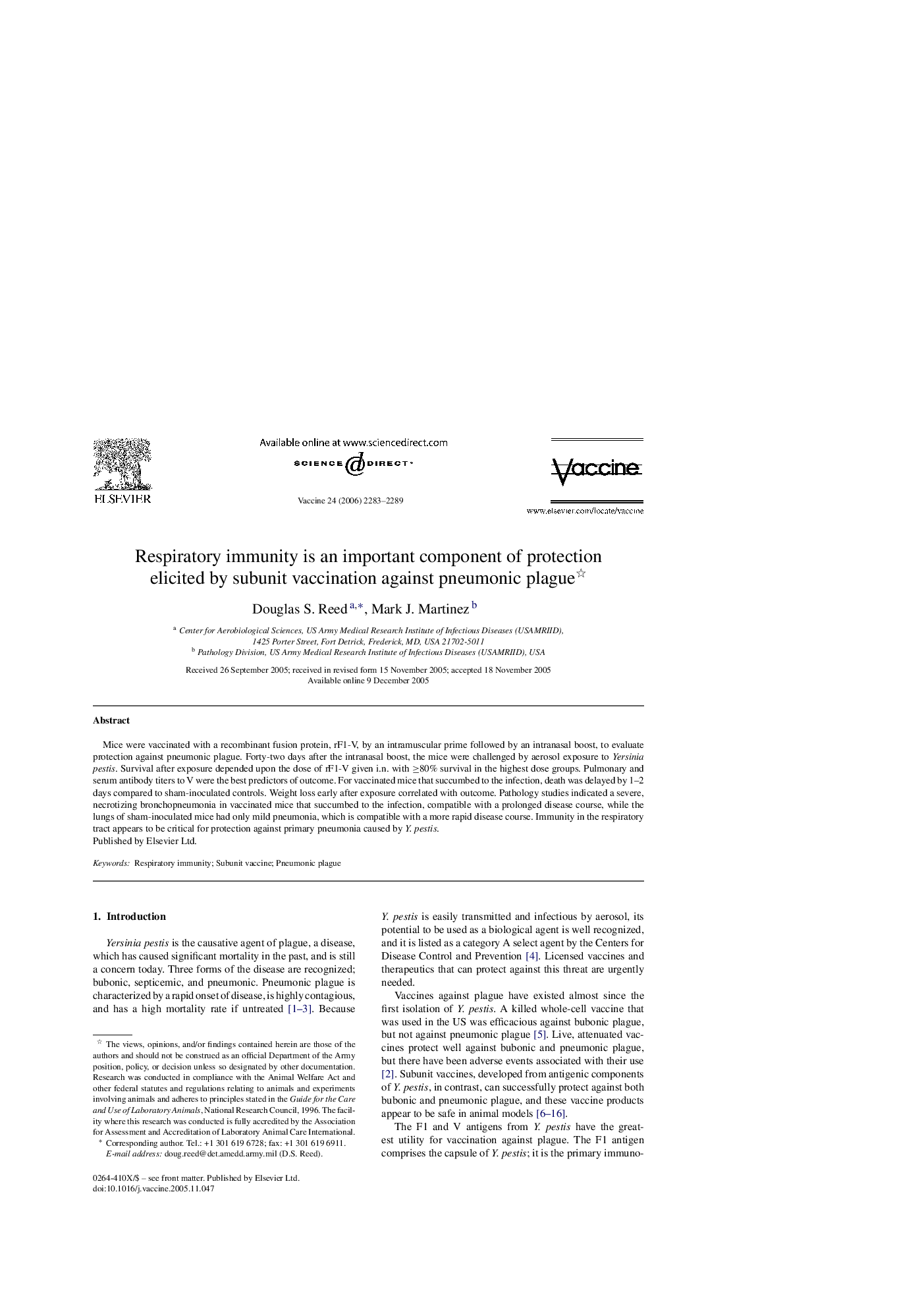| Article ID | Journal | Published Year | Pages | File Type |
|---|---|---|---|---|
| 2407751 | Vaccine | 2006 | 7 Pages |
Mice were vaccinated with a recombinant fusion protein, rF1-V, by an intramuscular prime followed by an intranasal boost, to evaluate protection against pneumonic plague. Forty-two days after the intranasal boost, the mice were challenged by aerosol exposure to Yersinia pestis. Survival after exposure depended upon the dose of rF1-V given i.n. with ≥80% survival in the highest dose groups. Pulmonary and serum antibody titers to V were the best predictors of outcome. For vaccinated mice that succumbed to the infection, death was delayed by 1–2 days compared to sham-inoculated controls. Weight loss early after exposure correlated with outcome. Pathology studies indicated a severe, necrotizing bronchopneumonia in vaccinated mice that succumbed to the infection, compatible with a prolonged disease course, while the lungs of sham-inoculated mice had only mild pneumonia, which is compatible with a more rapid disease course. Immunity in the respiratory tract appears to be critical for protection against primary pneumonia caused by Y. pestis.
